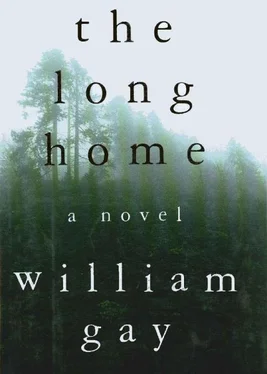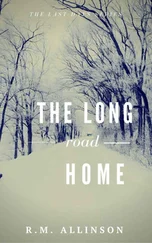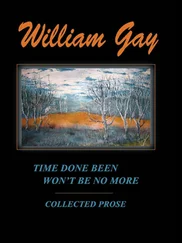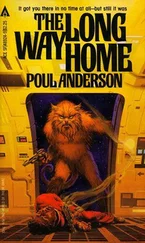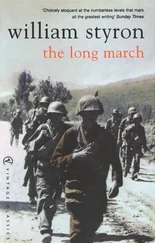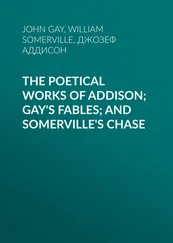William Gay
The Long Home
— This first novel is for my first daughter,
LEE GAY WARREN, in love and gratitude, and with the knowledge that her belief never faltered.
Like flies, the minute-winning days buzz home to death, and every moment is a window on all time.
— Thomas Wolfe, Look Homewards, Angel (1929)
Also when they shall be afraid of that which is high, and fears shall be in the way, and the almond tree shall flourish, and the grasshopper shall be a burden, and desire shall fail; because man goeth to his long home, and the mourners go about the streets.
— Ecclesiastes 12: 5

WILLIAM GAYwas the author of four novels, including Provinces of Night, Twilight , as well as I Hate to See That Evening Sun Go Down , a collection of short stories. He lived in Hohenwald, Tennessee. Sadly, William died in February 2012 in his sixty-ninth year.
The author would like to acknowledge a debt to his editor, Greg Michalson, and thank him for his skill and patience. He would also like to thank Renee Leonard for her help in the preparation of this manuscript.
Thomas Hovington was walking across his backyard when he heard a sound that caused him to drop the bag of feed he was carrying and stand transfixed. It was a curious kind of sound that seemed to come from the bowels of the earth, from somewhere beneath his feet, a dull, muffled boom that he could feel in his teeth and hear rattle the glass in the unglazed windows behind him. While he stood motionless it came again, somewhere beneath the branch-run, like great round stones rolling down chambered corridors in the earth or some great internal storm flaring in the hollows of the world, lightning quaking unseen in sepulchers dark and sleek and damp, the surfaces of the earth trembling at the thunder’s repercussions.
He went back to the edge of the porch and sat uncertainly and stared at the solid earth he’d taken so for granted. Hovington was in his twenties then and his back not yet bent. He had just recently commenced bootlegging and some vague childhood remnant of religion troubled him, made him look about for signs of retribution. It might be a sign. A warning.
If so, it wanted no misunderstanding. When it came this time it sounded as if a truckload of dynamite had exploded and almost immediately the branch began to rise and the air filled with water and flying stones. “They Goddamn,” Hovington cried. He threw his arms about his head and leapt up wildly while the rocks were falling on the roof in a rising tintinnabulation and below the spring a veritable floor of limestone rose in a solid sheet and subsided in slabs half the size of automobiles. A sluice of water shot upward.
Hovington cowered on the porch alternately praying and swearing in a desperate attempt to cover all the bases. A cloud of rock dust shifted and dissipated in the water and the spring branch had deepened perceptibly. After a while it began to fall again and everything went very quiet.
When he had his courage built up sufficiently he eased through the stones to the spring. About fifty yards from his house the earth had opened up in a shaft eight or ten feet across. A haze of powdered rock still hung over it. He could smell something like cordite.
Brimstone, he breathed. He peered down the sides of the shaft. Smooth stone fell away dizzy and plumb and all there was below was darkness. He dropped a stone and heard it go skittering away down the sides of the aperture to ultimate blackness but he never heard it strike bottom.
He cut chestnut poles and built a fence around the hole four feet high. At first there was no sound at all out of the shaft but in a few days he began to hear a murmur from deep in the earth: you had to strain to hear it but there was an indefinable far-off sound. Some folks likened it to a swarm of bees, other reckoned it was just subterranean waters. Hovington called it voices. They bespoke him with languorous foreboding and if he listened long enough he could separate the sound into different voices, point and counterpoint, query and reply. He wondered what such curious folk as these might have to talk about, what language they expressed themselves in.
Nathan Winer was a native of the county and by trade he was a carpenter who farmed a little on the side. He had a wife and a seven-year-old son who was named Nathan as well and was already much like him.
“Go through life mindin your own business and everybody else will mind theirs,” he used to tell the boy.
But in spite of minding his own business, he was forced in the spring of 1932 to go down to Hovinton’s looking for Dallas Hardin, a man who had simply moved in on Hovington, taken over his bootlegging business, and, folks said, his wife Pearl as well.
In the past year Hovington’s health had so deteriorated that he stayed in bed. His spine was bent like some metal God Almighty had heated to pliable temperature and laid hands and bent to his liking. He could not even turn over by himself. Already the disease that would kill him incubated within him. He lay curled by the window where by day he could see across the yard to whatever traffic accomplished itself on the road. By night his own lamplit reflection, the room its weary backdrop.
The house had four rooms. The long front room where Hovington slept — lived, actually — and where Hovinton’s black-haired daughter slept on a foldup army cot that doubled as a couch in the daytime. A kitchen. A bedroom where Hardin and Hovington’s wife Pearl slept. A room that was used to store oddments of junk and as a repository for the cases of beer and wine Hardin had taken to stocking.
Hardin came through the kitchen door carrying a coaloil lamp just as a rap sounded on the door. He set the lamp on the sewing-machine cabinet and opened the door a crack. Wind from the rainy night guttered the flame, it dished and wavered in the globe, steadied.
“I need to talk to you, Hardin,” Winer said. Lamplight glinted onto goldcapped teeth.
“Then come on in out of the rain.”
“I want to talk to you out here.”
Hardin took down his hat from a nail beside the door and stepped into the muddy yard and closed the door behind him. He stood coatless in the rain.
“What is it you wanted that had to be said in the rain?” he asked.
“I wanted to tell you somethin,” Winer said. He stood with his feet apart, hands shoved deep in his coat pockets, his head cocked back a little, his face flinty and arrogant beneath the ruined hat. “I found your whiskey still on my land and this is what I come to say. Now, I don’t care if you make whiskey till you’re ass deep in it but don’t make it on my land. If the law found that still they’d come down on me, not you.”
“That’s about the way I figured it too,” Hardin said. “Did you bust it up?”
“You damn right I did. I broke that whiskey too.”
“Now, you ortnt done that.”
“Why Goddamn you. If the son of a bitch hadn’t been so heavy I’d’ve dumped it in your front yard. I don’t know who you are or where you come from. Nor what kind of a deal you run on Hovington here. But I’ll tell you one thing. Don’t mess with me. If piece one of that thing goes up on my ground again, me and you goin around and around.”
Hardin’s face looked as if the skin had suddenly been drawn taut. “I never took a order in my life from a tenant-farmin redneck and I’m too old to start now.”
Читать дальше
